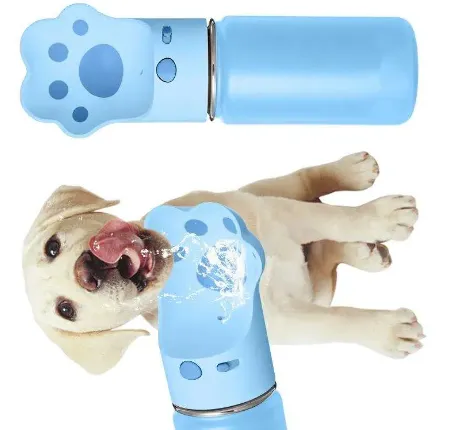Redefine Pet Comfort with Thoughtfully Designed Essentials
Creating a happy, healthy environment for pets involves much more than just food and shelter. It’s about offering them comfort, mental stimulation, and hygiene products that align with their needs. From stylish clothes for dogs to nutritious treats and eco-conscious litter options, modern pet care has evolved into a holistic lifestyle. Pet owners today are more attentive than ever, not just fulfilling basic needs but enhancing the daily lives of their furry companions through smarter, better-designed essentials. Let’s explore how these core pet products support well-being, behavioral enrichment, and long-term happiness for both dogs and cats.

Stylish Choices and Functional Benefits of Clothes for Dogs in Modern Pet Care
Fashion is not the only reason people choose clothes for dogs; these garments serve both aesthetic and functional purposes. Many small or short-haired breeds suffer in cold or rainy weather, and outfitting them with protective clothing helps regulate body temperature and shields them from the elements. The use of clothes for dogs also aids anxious pups, offering a swaddling comfort effect during stressful moments like thunderstorms or travel. With so many fabrics, fits, and seasonal styles available, it’s easier than ever to find a balance between protection and fashion, ensuring pets remain cozy and stylish year-round.
Promoting Health and Happiness with Wholesome Dog Treats That Dogs Adore
A balanced diet for pets is fundamental, but occasional dog treats are not just about indulgence — they are integral to training and bonding. High-quality dog treats can provide essential nutrients, improve dental hygiene, and act as motivational tools during behavior reinforcement. Pet parents are increasingly scrutinizing ingredient lists, looking for treats free from artificial additives and packed with real meat, vegetables, or functional supplements. Whether used as a training reward, boredom buster, or simply a symbol of affection, treats play a vital role in strengthening the human-dog relationship and maintaining canine mental well-being.
How Nutritious Cat Treats Support Feline Enrichment and Health Goals
Felines may be more selective in their eating habits, but that doesn’t mean they can’t enjoy delicious cat treats that also deliver functional health benefits. Many modern cat treats are formulated to target specific needs such as hairball control, urinary tract health, or dental care. They are available in various textures — crunchy, soft, or creamy — to suit individual preferences. By incorporating treats into interactive play, owners can encourage activity in indoor cats while building trust. The key is moderation and choosing products enriched with taurine, omega fatty acids, and high-quality proteins to support overall feline wellness.
Managing Odor and Hygiene with Highly Absorbent Bentonite Cat Litter Options
Cleanliness is essential for every cat household, and Bentonite cat litter remains one of the most effective solutions for odor control and moisture absorption. Composed of natural clay minerals, Bentonite cat litter forms firm clumps on contact with moisture, making it easy to scoop and maintain a sanitary litter environment. It also locks in odor, keeping homes fresh even in multi-cat settings. The ease of maintenance combined with superior clumping makes this type of litter ideal for busy pet parents who prioritize convenience without sacrificing hygiene. When sourced responsibly, bentonite is also safe and gentle on pets' paws.
Eco-Friendly Tofu Cat Litter as a Sustainable and Pet-Safe Alternative
With environmental consciousness on the rise, many pet owners are turning to Tofu cat litter as a plant-based, biodegradable option. Made from natural soybean residue, Tofu cat litter offers excellent clumping and deodorizing capabilities while being entirely flushable and compostable. This makes it a preferred choice for eco-minded households looking to reduce their carbon pawprint. It is also dust-free, making it suitable for cats with respiratory sensitivities and for homes that value cleanliness. While slightly more expensive than traditional clay-based litter, the environmental and health advantages of tofu litter make it a worthwhile long-term investment.
Do Clothes for Dogs Affect Their Behavior or Movement?
Dog clothes, when properly fitted and made of breathable material, do not inhibit movement and may actually soothe anxious pets by providing a gentle, hugging sensation.
What Ingredients Should I Look for in Dog Treats?
Opt for natural ingredients such as real meat, sweet potato, and oats. Avoid treats with artificial colors, by-products, or excessive fillers like cornmeal.
Are Cat Treats a Good Substitute for Regular Food?
Cat treats should complement, not replace, a balanced feline diet. Use them as a supplement or reward, not as a meal substitute, unless specified by a vet.
Is Bentonite Cat Litter Safe for Kittens?
While bentonite is effective, it's generally recommended to wait until kittens are at least four months old to ensure they do not ingest clumps accidentally during grooming.
How Often Should Tofu Cat Litter Be Replaced?
Tofu litter should be fully replaced every 5–7 days depending on usage, though daily scooping is advised to maintain hygiene and odor control.
Pet Essentials FAQs
Q: Can clothes for dogs be worn year-round?
A: Yes, depending on the material. Lightweight cotton or breathable mesh is suitable for warmer months, while fleece or waterproof jackets are better for cold or rainy seasons.
Q: Are dog treats safe for puppies?
A: Many brands offer puppy-specific treats that are softer and nutritionally balanced for younger dogs. Always follow the age recommendation on the label.
Q: How many cat treats can I give per day?
A: This depends on the cat’s size, age, and activity level. Generally, treats should make up no more than 10% of a cat’s daily caloric intake.
Q: What makes bentonite cat litter better than non-clumping alternatives?
A: Bentonite litter clumps quickly upon contact with moisture, making it easier to scoop and control odor compared to non-clumping options.
Q: Why choose tofu cat litter over traditional clay litter?
A: Tofu litter is biodegradable, dust-free, and often flushable, making it a healthier, eco-friendly alternative for both pets and their owners.







